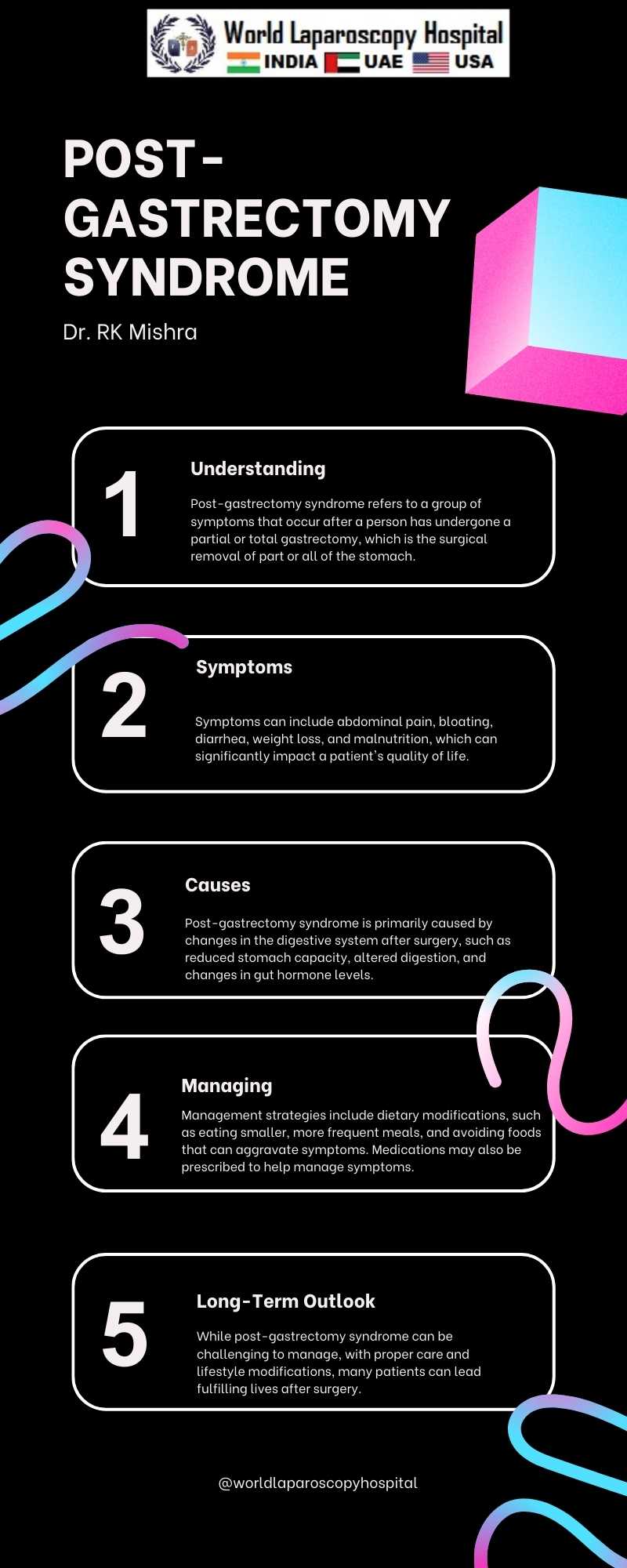Post-gastrectomy syndrome: Symptoms that occur after surgery to remove all or part of the stomach
Post-gastrectomy Syndrome: Symptoms After Stomach Surgery
Post-gastrectomy syndrome refers to a set of symptoms that occur following surgical removal of all or part of the stomach, known as gastrectomy. This surgical procedure is commonly performed to treat stomach cancer, ulcers, or other serious stomach disorders. While gastrectomy can be life-saving, it can also lead to various digestive and nutritional challenges that significantly impact a patient's quality of life.

One of the primary symptoms of post-gastrectomy syndrome is dumping syndrome, which occurs when food moves too quickly from the stomach into the small intestine. This rapid emptying can cause symptoms such as nausea, vomiting, diarrhea, abdominal pain, and bloating. Patients may also experience a rapid increase in heart rate, sweating, and dizziness, especially after consuming sugary or high-carbohydrate foods.
Another common symptom is malabsorption, which occurs due to the reduced capacity of the stomach to produce digestive enzymes and absorb nutrients. As a result, patients may experience deficiencies in essential vitamins and minerals, leading to fatigue, weakness, and other health issues.
Reflux symptoms, such as heartburn and regurgitation, can also occur after gastrectomy due to changes in the anatomy of the digestive tract. The stomach's ability to prevent acid from flowing back into the esophagus is compromised, leading to discomfort and potential complications if left untreated.
Furthermore, some patients may develop a condition known as bile reflux gastritis, where bile from the small intestine flows back into the stomach, causing irritation and inflammation of the stomach lining. This can result in symptoms such as stomach pain, nausea, and vomiting.
Managing post-gastrectomy syndrome requires a multidisciplinary approach involving dietary modifications, medication management, and lifestyle changes. Patients are often advised to eat smaller, more frequent meals and avoid foods that can trigger symptoms, such as high-fat or high-sugar foods. They may also need to take supplements to address nutrient deficiencies and medications to manage symptoms such as reflux or diarrhea.
Conclusion:
Post-gastrectomy syndrome is a complex condition that can significantly impact the lives of patients who have undergone stomach surgery. It is essential for healthcare providers to be aware of these symptoms and provide appropriate support and management strategies to improve patients' quality of life post-surgery.
Post-gastrectomy syndrome refers to a set of symptoms that occur following surgical removal of all or part of the stomach, known as gastrectomy. This surgical procedure is commonly performed to treat stomach cancer, ulcers, or other serious stomach disorders. While gastrectomy can be life-saving, it can also lead to various digestive and nutritional challenges that significantly impact a patient's quality of life.

One of the primary symptoms of post-gastrectomy syndrome is dumping syndrome, which occurs when food moves too quickly from the stomach into the small intestine. This rapid emptying can cause symptoms such as nausea, vomiting, diarrhea, abdominal pain, and bloating. Patients may also experience a rapid increase in heart rate, sweating, and dizziness, especially after consuming sugary or high-carbohydrate foods.
Another common symptom is malabsorption, which occurs due to the reduced capacity of the stomach to produce digestive enzymes and absorb nutrients. As a result, patients may experience deficiencies in essential vitamins and minerals, leading to fatigue, weakness, and other health issues.
Reflux symptoms, such as heartburn and regurgitation, can also occur after gastrectomy due to changes in the anatomy of the digestive tract. The stomach's ability to prevent acid from flowing back into the esophagus is compromised, leading to discomfort and potential complications if left untreated.
Furthermore, some patients may develop a condition known as bile reflux gastritis, where bile from the small intestine flows back into the stomach, causing irritation and inflammation of the stomach lining. This can result in symptoms such as stomach pain, nausea, and vomiting.
Managing post-gastrectomy syndrome requires a multidisciplinary approach involving dietary modifications, medication management, and lifestyle changes. Patients are often advised to eat smaller, more frequent meals and avoid foods that can trigger symptoms, such as high-fat or high-sugar foods. They may also need to take supplements to address nutrient deficiencies and medications to manage symptoms such as reflux or diarrhea.
Conclusion:
Post-gastrectomy syndrome is a complex condition that can significantly impact the lives of patients who have undergone stomach surgery. It is essential for healthcare providers to be aware of these symptoms and provide appropriate support and management strategies to improve patients' quality of life post-surgery.
No comments posted...
| Older Post | Home | Newer Post |

